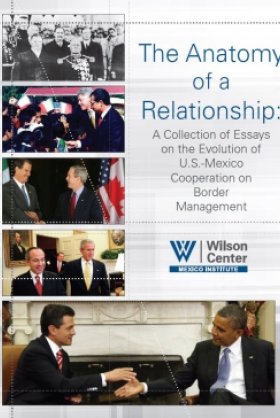Lessons from the Development of Binational and Civil Society Cooperation on Water Management at the U.S.-Mexico Border


Mexico and the United States are partners in a number of agreements that imply joint management of natural resources and have had a long and productive history of sharing water resources. The two countries share water resources in the Colorado and Tijuana river basins, and in the Rio Grande basin; the joint utilization of their waters is defined by the Treaty of February 3, 1944 and its Minutes.
The authors argue that -since ecosystems do not respect national boundaries- binational cooperation on cross-border environmental issues is a must. Environmental issues must be seen as an integral part of border affairs and border management. Economic, security and environmental issues are all interrelated and must be addressed as such. Further, the authors believe that civil society activism and inter-governmental cooperation have played mutually reinforcing roles in improving the way that the two countries manage natural resources and moving towards a truly regional approach in a binational context.
The essay analyzes binational and civil society cooperation on cross-border environmental issues, with a special focus on water management. The piece looks at binational water management from a holistic perspective, arguing that the growing involvement of civil society has improved policy outcomes.
The above text is an excerpt from the introduction to the essay. This essay is part five of our series "The Anatomy of a Relationship: A Collection of Essays on the Evolution of U.S.-Mexico Cooperation on Border Management."
Authors

Associate Professor, Centro de Investigación y Docencia Económicas (CIDE)

Mexico Institute
The Mexico Institute seeks to improve understanding, communication, and cooperation between Mexico and the United States by promoting original research, encouraging public discussion, and proposing policy options for enhancing the bilateral relationship. A binational Advisory Board, chaired by Luis Téllez and Earl Anthony Wayne, oversees the work of the Mexico Institute. Read more

